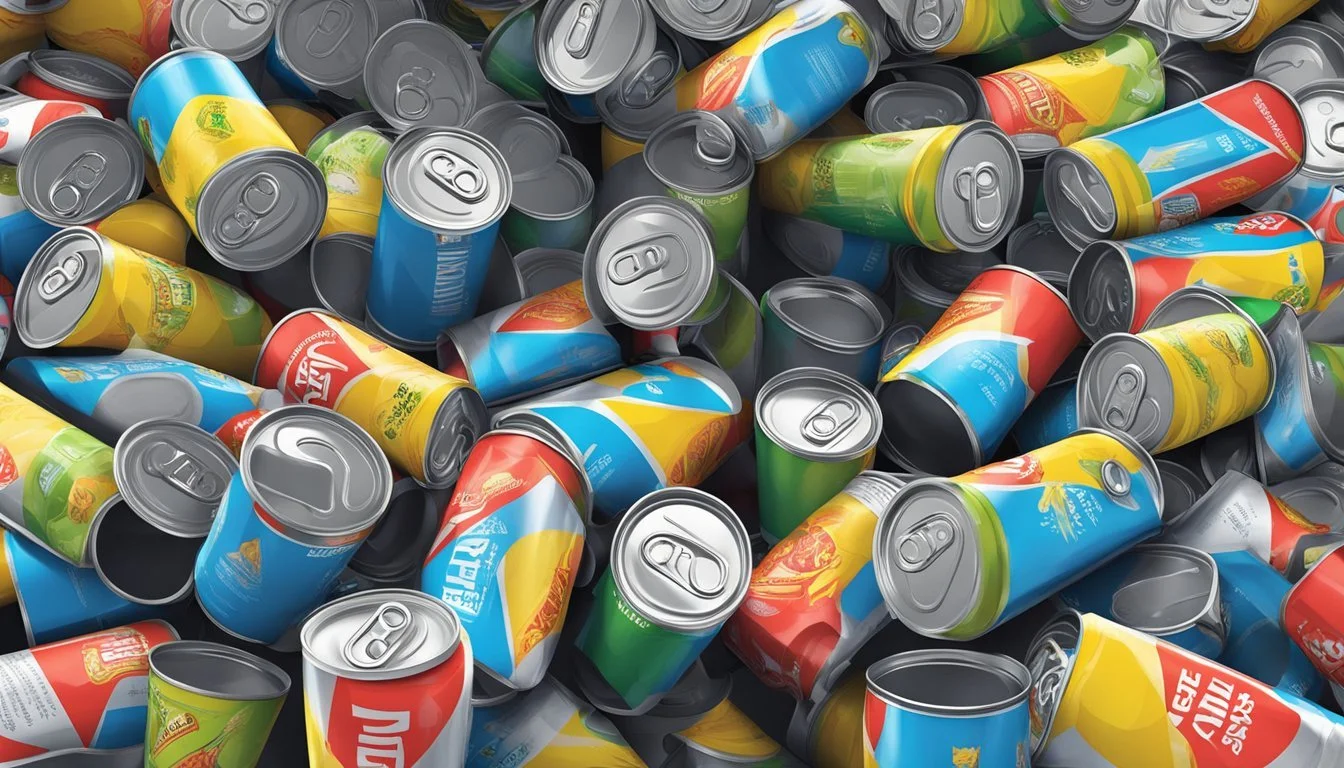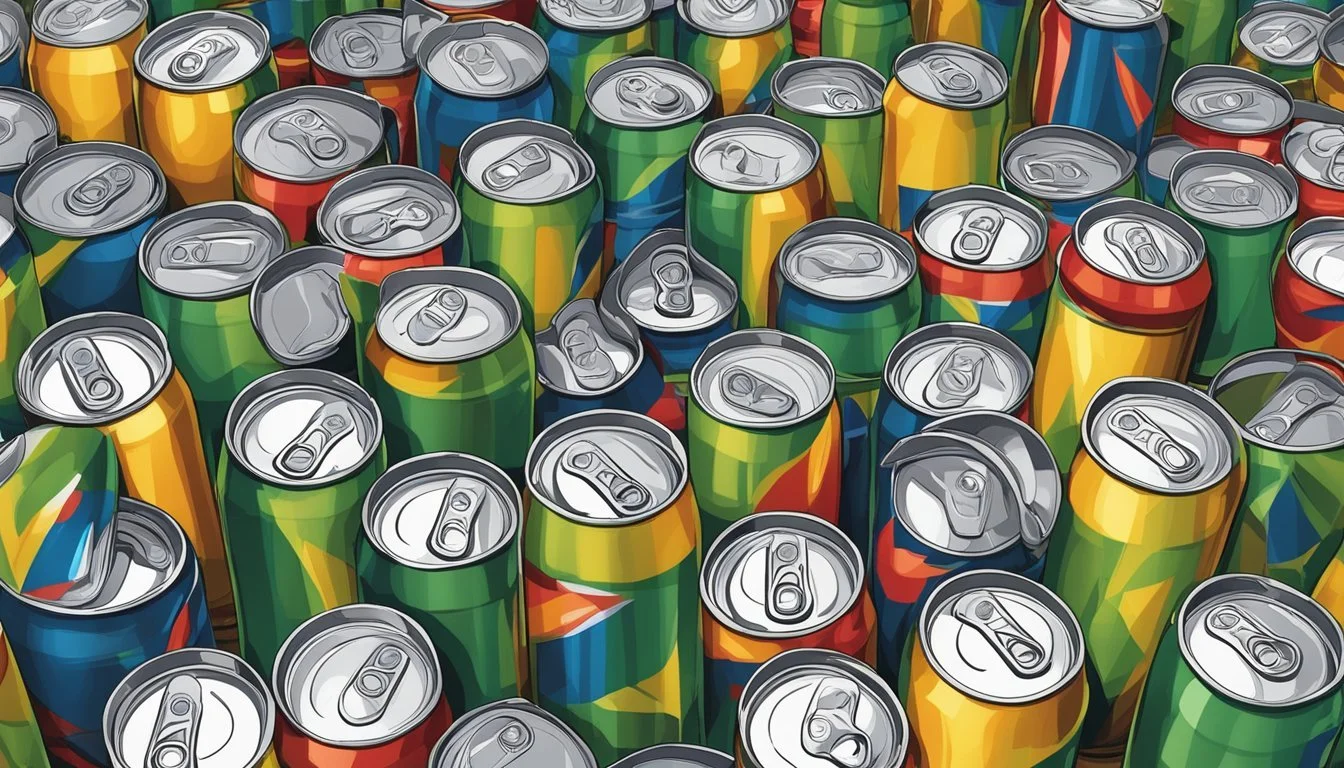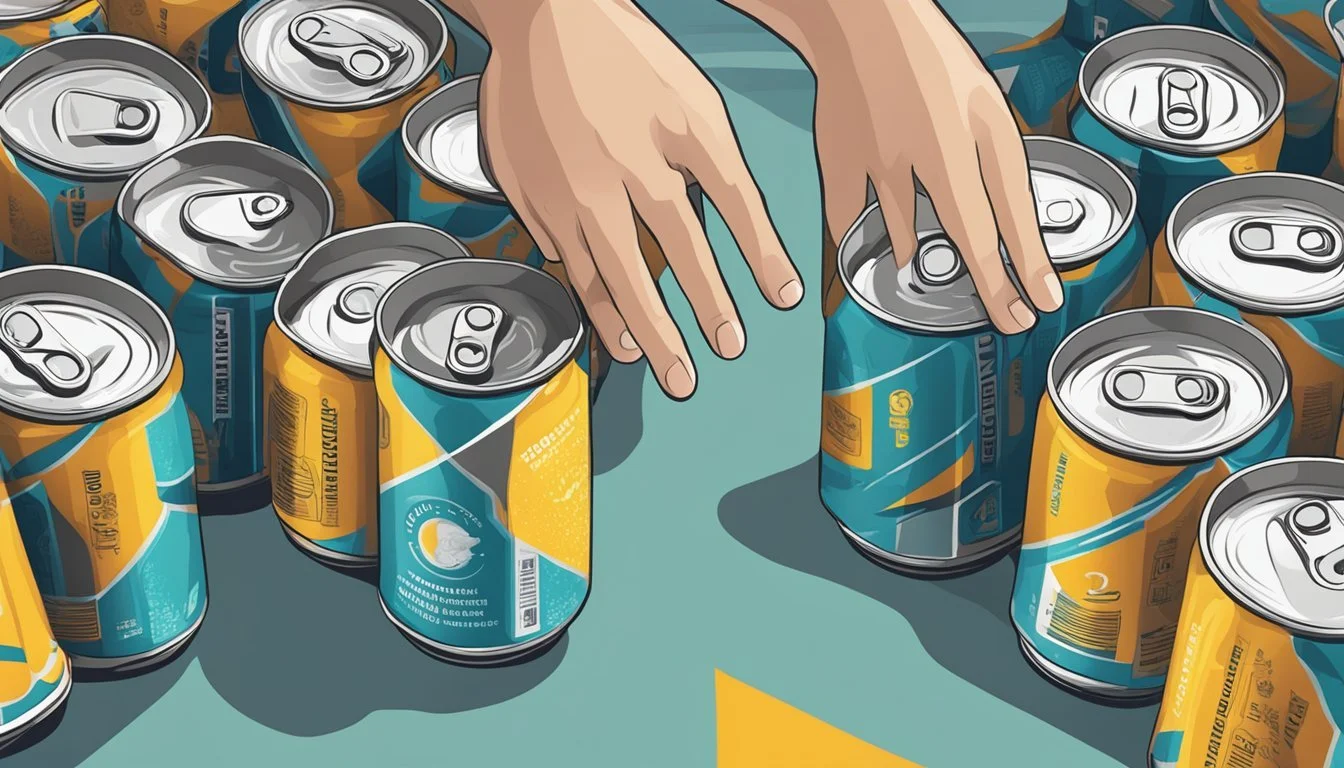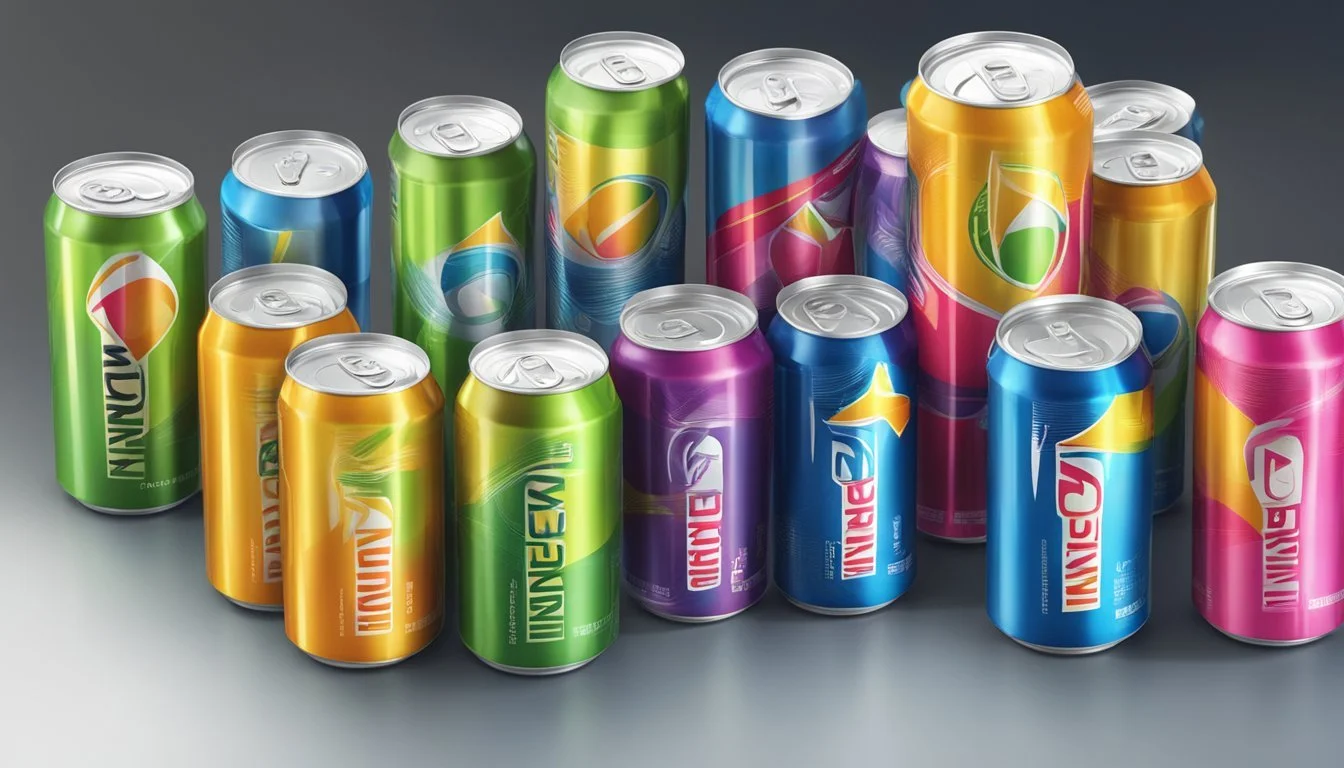How Many Servings of Neutonic Energy Drink Is Too Much
Health Guidelines and Risks
Determining the right number of servings of Neutonic energy drink for individuals requires careful consideration. Each 8-ounce can contains 120mg of natural caffeine, which is approximately 25-30% of the recommended daily allowance for caffeine. The FDA suggests that healthy adults can safely consume up to 400mg of caffeine per day.
Given these guidelines, it is advisable not to exceed three servings of Neutonic energy drink per day to stay within safe limits. Overconsumption can lead to undesirable effects such as jitteriness, anxiety, and an increased heart rate. Additionally, keeping track of other caffeine sources throughout the day is crucial to avoid surpassing the recommended limit.
Energy drinks, while effective for a temporary boost in energy and alertness, should be consumed in moderation. Awareness of the ingredients and their effects on the body is key to making informed choices about consumption.
Understanding Energy Drinks
Energy drinks are formulated to provide a quick boost in mental and physical performance through a combination of various ingredients. They usually contain stimulants, vitamins, and other compounds aimed at enhancing alertness and reducing fatigue.
What Are Energy Drinks?
Energy drinks are beverages designed to increase energy, concentration, and physical stamina. They are popular among individuals seeking a quick boost during periods of mental or physical exertion. Typically, these drinks contain a blend of caffeine, sugar, and other performance-enhancing ingredients.
Key components include:
Caffeine: Commonly ranging from 80 mg to 300 mg per serving, used to improve mental alertness and reduce fatigue.
Sugar: Provides a quick source of glucose, which is converted into energy.
Nootropics: Ingredients that may enhance cognitive function.
Consumers should be mindful of their intake due to the varying caffeine content and potential for excessive sugar consumption.
Common Ingredients in Energy Drinks
Caffeine: The primary active ingredient, known for its stimulating properties. It can help improve focus and stave off tiredness.
Taurine: An amino acid found naturally in the body that supports neurological development and regulates water and mineral salt levels.
Guarana: A plant extract that contains caffeine, often added for enhanced energy and alertness.
Vitamins: B vitamins, especially B6 and B12, are common. They play critical roles in energy metabolism and brain function.
Sugar and Artificial Sweeteners: Energy drinks often use high sugar levels for immediate energy. For lower-calorie options, artificial sweeteners like sucralose might be used.
Energy drinks combine these ingredients to offer a quick and effective energy boost, but moderation is crucial to avoid potential adverse effects.
Health Impacts of Energy Drinks
Energy drinks can significantly affect physical health, psychological well-being, and long-term health risks. These impacts are crucial to understand in order to make informed decisions about consumption.
The Effects on Physical Health
Energy drinks contain high levels of caffeine, taurine, sugar, and B vitamins, which can lead to several physical health issues. Excessive consumption often results in increased blood pressure and heart rate, which stress the cardiovascular system. Some people may experience dehydration due to the diuretic effect of caffeine, leading to frequent urination and potential electrolyte imbalances.
Gastrointestinal disturbances such as nausea, vomiting, and diarrhea can occur due to high sugar and caffeine content. Additionally, overconsumption is linked to headaches and fatigue. In extreme cases, individuals have reported acute conditions like pancreatitis and acute kidney injury.
The Psychological Effects
Energy drinks can also impact mental health. High caffeine intake is associated with sleep disturbances, as it can delay sleep onset and reduce sleep quality. This often results in tiredness and fatigue during the day, creating a cycle of dependence on these drinks.
Psychologically, users may experience increased anxiety and irritability. There's a noted correlation between energy drink consumption and feelings of anxiety and depression. Regular consumers might develop a dependency, feeling the need for the stimulant effect to maintain normal daily functions, which can further exacerbate psychological stress.
Long-Term Health Risks
In the long-term, frequent consumption of energy drinks poses several health risks. Chronic use can lead to sustained high blood pressure, increasing the risk of heart disease. The high sugar content contributes to obesity and the potential development of type 2 diabetes.
There's also a concern about renal health as habitual consumption can lead to long-term kidney issues. Regular intake might aggravate preexisting gastrointestinal conditions and lead to chronic headaches. Additionally, the combination of physical and psychological effects increases the risk of developing serious, chronic health conditions over time.
Understanding these impacts should guide individuals in moderating their consumption to avoid these adverse outcomes.
Caffeine: Benefits and Drawbacks
Caffeine stimulates the nervous system, aiding in alertness and productivity. It is commonly found in coffee, energy drinks, and various supplements.
Understanding Caffeine Content
Caffeine content varies widely across different beverages and supplements. For example, a standard cola (12 ounces) contains approximately 35-45 mg of caffeine, while an energy drink (8 ounces) can range from 70-100 mg. Coffee is also a popular source of caffeine, with a 16-ounce Americano containing around 225 mg. The recommended daily caffeine intake should not exceed 400 mg for most adults. Monitoring caffeine content is crucial to avoid excessive intake.
Caffeine's Role in Energy Drinks
Energy drinks, such as Neutonic, use caffeine as a primary stimulant to boost alertness and cognitive performance. Neutonic, with its 120 mg of natural caffeine per serving, provides sustained energy without the crash commonly associated with other energy drinks. The combination of caffeine with other ingredients like B Vitamins and nootropics enhances productivity and mental clarity. It's essential to understand the stimulant role caffeine plays in these drinks to manage intake effectively.
Adverse Effects of Caffeine
While caffeine has numerous benefits, excessive consumption can lead to adverse effects. High caffeine intake can cause jitteriness, anxiety, and increased heart rate, among other symptoms. In severe cases, caffeine overdose may result in serious health issues, such as heart palpitations or even hospitalization. It's important to recognize the signs of too much caffeine and adjust consumption accordingly to maintain a healthy balance.
Sugar and Calories in Energy Drinks
Energy drinks often contain high levels of sugar and calories, impacting both energy levels and overall health. Exploring these factors helps understand their influence on the body and how products like Neutonic compare to traditional options.
Effects of Sugar on Energy Levels
Sugar content in energy drinks can provide a quick burst of energy. This is due to the rapid absorption of glucose into the bloodstream, which can temporarily enhance alertness and physical energy.
However, the energy spike is often followed by a crash. A significant drop in blood sugar can lead to fatigue, irritability, and decreased concentration. Overconsumption of sugary drinks can also contribute to weight gain and other health issues such as diabetes.
Comparing Sugar and Calorie Content
Energy drinks vary widely in their sugar and calorie content. Traditional energy drinks can contain several hundred calories per serving due to high levels of added sugar. For instance, a typical 330ml can might have over 200 calories and 50 grams of sugar.
By contrast, Neutonic offers a sugar-free alternative with only 6 calories per 330ml can. This low-calorie count is appealing for those looking to maintain energy without the added caloric intake. The absence of added sugar helps prevent the energy crashes common with sugary drinks.
Age-Related Considerations
When considering how many servings of Neutonic energy drink are too much, age plays a crucial role.
Children and Adolescents
Children under 12 should avoid caffeine altogether, as recommended by the American Academy of Pediatrics. For those aged 12-18, the maximum safe intake is 100 milligrams of caffeine daily. Neutonic contains 120 mg per serving, exceeding this limit. High caffeine intake in adolescents can lead to dangerous side effects like increased heart rate, anxiety, and high blood pressure.
Unfortunately, energy drinks are popular among teens. Studies indicate that a significant percentage of teenagers have tried energy drinks. Therefore, parents and guardians should monitor and possibly restrict the consumption of products like Neutonic in this age group to ensure their safety.
Energy Drinks and the Elderly
For elderly individuals, sensitivity to caffeine can increase. Many seniors may also be on medications that could interact negatively with high caffeine levels. Neutonic, with its potent blend of nootropic ingredients and 120 mg of caffeine, could pose risks such as insomnia, increased heart rate, and elevated blood pressure in older adults.
It's advisable for the elderly to consult their healthcare providers before consuming energy drinks like Neutonic. A thorough review of their current health status and any medications they are taking can help determine if they should avoid or limit their intake of such products to prevent potential health complications.
Safe Consumption Guidelines
It is essential to manage intake levels for Neutonic Energy Drink to avoid potential adverse effects. Factors include FDA regulations, interactions between caffeine and other substances, and overall moderation principles.
Recommended Intake Limits
Adults should generally limit their intake of Neutonic Energy Drink to 1-2 servings per day. Each serving typically contains around 80 mg of caffeine, adding up to a safe zone well below the FDA's recommended maximum of 400 mg daily. Exceeding these limits can lead to health issues such as jitteriness, headaches, or more severe cardiovascular problems.
Each individual's tolerance can vary, so personal factors such as age, weight, and sensitivity to caffeine must be considered. It's also crucial to account for other sources of caffeine consumed throughout the day, such as coffee or tea.
The Role of FDA Regulation
The FDA plays a crucial role in monitoring and regulating the safe consumption of energy drinks. They set guidelines around maximum allowable levels for ingredients like caffeine and sugars. Adding to that, energy drink manufacturers must comply with federal labeling requirements to inform consumers about the contents and safe usage levels.
The FDA's regulations ensure that manufacturers provide accurate ingredient lists and warnings, helping consumers make informed choices. For instance, adherence to these regulations means highlighting the presence of substances like guarana, which further boosts caffeine levels in the product.
Interactions with Other Substances
Individuals taking medications or managing health conditions should exercise caution with Neutonic Energy Drink. Caffeine can interact negatively with various medications, including those for heart conditions, antidepressants, and anti-anxiety drugs. This can enhance side effects or reduce the effectiveness of medication.
Alcohol and energy drinks should never be combined as the stimulant effects of caffeine can mask the depressant effects of alcohol, leading to increased alcohol consumption and the risk of alcohol poisoning. Furthermore, ingredients like taurine and guarana found in many energy drinks can amplify these adverse interactions.
In summary, adhering to recommended intake limits and being mindful of how Neutonic Energy Drink interacts with other substances is essential for maintaining health and well-being.
Energizing Alternatives to Energy Drinks
Individuals looking for alternatives to energy drinks have a variety of options that can provide a sustainable energy boost without the side effects of excessive caffeine consumption. These alternatives can include natural sources of energy and certain supplements.
Natural Sources of Energy
Natural sources can be an excellent way to maintain energy levels. Kombucha, a fermented tea rich in probiotics and B vitamins, can offer a gentle lift. It contains 10-15mg of caffeine per 8-ounce serving and supports gut health.
Fresh fruits and vegetables are another great choice. They provide complex carbohydrates, fiber, and natural sugars, helping to sustain energy without causing sudden spikes and crashes.
Protein-packed smoothies offer sustained energy. A simple smoothie can include a base of milk or yogurt, a scoop of protein powder, and additions like nut butter, bananas, and spinach.
Hydration plays a critical role in maintaining energy. Herbal teas and water-rich fruits such as watermelons can keep individuals hydrated and energized throughout the day.
Rest and exercise also contribute significantly to energy levels. Regular physical activity and sufficient sleep are essential for maintaining consistent energy and overall well-being.
Considering Supplements
Adaptogens like those found in products such as Magic Mind® combine nootropics and functional mushrooms to support sustained energy without causing jitters.
Vitamins and minerals can help address deficiencies that might be causing fatigue. For instance, a B-complex vitamin supplement can support metabolism and energy production.
Caffeine sources that are gentler on the system, such as green tea extract, can offer a mild yet effective energy boost. Ensure these are consumed in moderation.
Mint is known for its refreshing and invigorating properties. Using mint in beverages or as an oil can provide a quick energy lift and improve focus.
By exploring these alternatives, individuals can find effective and healthier ways to maintain their energy levels without relying on conventional energy drinks.
Understanding Usage Trends
Neutonic energy drink has seen various usage trends among different groups. Athletes have shown a keen interest in it, while there may be noticeable differences in consumption patterns between genders.
Popularity Among Athletes
Athletes are frequent consumers of Neutonic due to its promise of enhanced cognitive function and sustained alertness. Unlike traditional sports drinks, Neutonic contains 120mg of natural caffeine which helps in maintaining energy levels during intense training sessions.
The nootropic ingredients in Neutonic also aid in better focus and mental clarity, essential for strategic and endurance sports. Athletes report fewer crashes compared to conventional energy drinks, making Neutonic a preferred option during practice and competitions.
Consumption Patterns in Different Genders
There are identifiable variances in how different genders consume Neutonic. Males tend to consume more frequent and higher volumes, possibly due to a higher general tolerance for caffeine and a greater pursuit of prolonged energy boosts for physical tasks.
Females, on the other hand, might prefer moderate consumption focused on maintaining mental clarity and reducing fatigue. The use of artificial sweeteners like Sucralose and Acesulfame K might appeal differently across genders, impacting their perception and subsequent usage.
Both genders appreciate the drink’s ability to prevent energy crashes and improve productivity, although the overall consumption habits and preferences can differ significantly.
Recognizing Warning Signs
Understanding when someone has had too much Neutonic energy drink is crucial for health and safety. This can help prevent side effects ranging from mild discomfort to serious medical emergencies.
Identifying Symptoms of Overconsumption
One of the first signs of drinking too much Neutonic is jitteriness. This can manifest as shaking hands, restlessness, or an inability to sit still.
Palpitations or an unusually fast heart rhythm are also common indicators. This may feel like a pounding or fluttering sensation in the chest.
Symptoms may also include high blood pressure and arrhythmia, characterized by an irregular heartbeat.
Other signs include confusion, difficulty concentrating, and shortness of breath. Severe cases may escalate to cardiac events, requiring immediate medical attention.
Responding to Energy Drink Emergencies
If you notice signs of overconsumption, it's important to act quickly. First, stop further intake of the energy drink. Encourage the individual to sit down and rest in a calm environment.
If symptoms like severe palpitations, high blood pressure, or arrhythmia occur and persist, contact emergency services immediately.
Breathing difficulties should be addressed by ensuring the person is in a safe position, ideally sitting upright, to make breathing easier.
For minor symptoms like jitteriness or mild confusion, drinking water and eating a small snack may help. Remember, swift action can prevent more serious complications.
Consumer Advice
Selecting the right energy drink and knowing when to consult with professionals are crucial for maintaining health and energy levels without overconsuming.
How to Choose an Energy Drink
Consumers should look at the ingredient list. Panax Ginseng and Caffeine are common in energy drinks like Neutonic. Panax Ginseng can boost energy and cognitive function.
Caffeine helps increase alertness. Neutonic contains 120 mg of caffeine per can, lower than some products. Sucralose is used as a sweetener, providing a low-calorie option with just 6 calories per can.
For a balanced dietary supplement, consult with a registered dietitian or nutritionist. They can offer personalized advice.
Evaluating shipping costs is also important. As per some reviews, the cost can be high and bulk purchasing may be more economical. Checking customer reviews and expert opinions is good practice.
When to Seek Professional Advice
Those new to energy drinks or with pre-existing health conditions should seek advice from a health professional. Overconsumption can lead to adverse effects like jitteriness, insomnia, and palpitations.
Understanding personal tolerance is key. Healthline advises being cautious with daily caffeine intake. Exceeding 400 mg can be harmful. Remember, caffeine content varies across brands; some drinks contain up to 500 mg.
Children and adolescents should avoid energy drinks, as supported by the American Academy of Pediatrics. If symptoms like rapid heartbeat, dizziness, or anxiety arise, contact a healthcare provider immediately.











